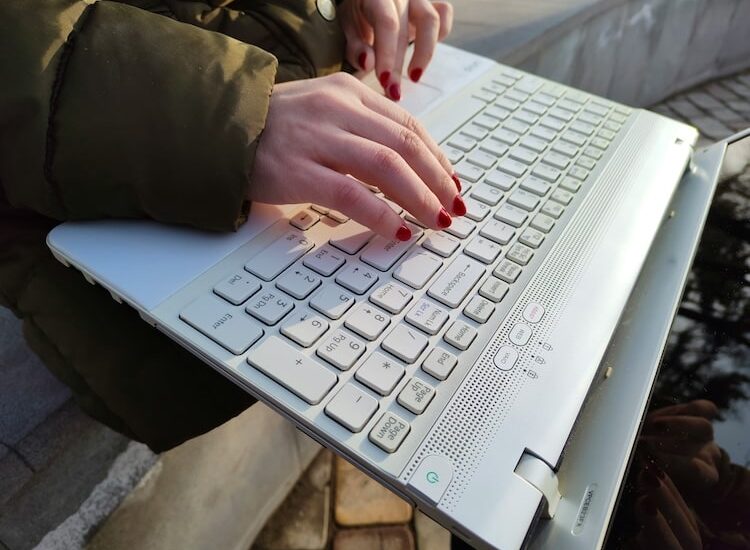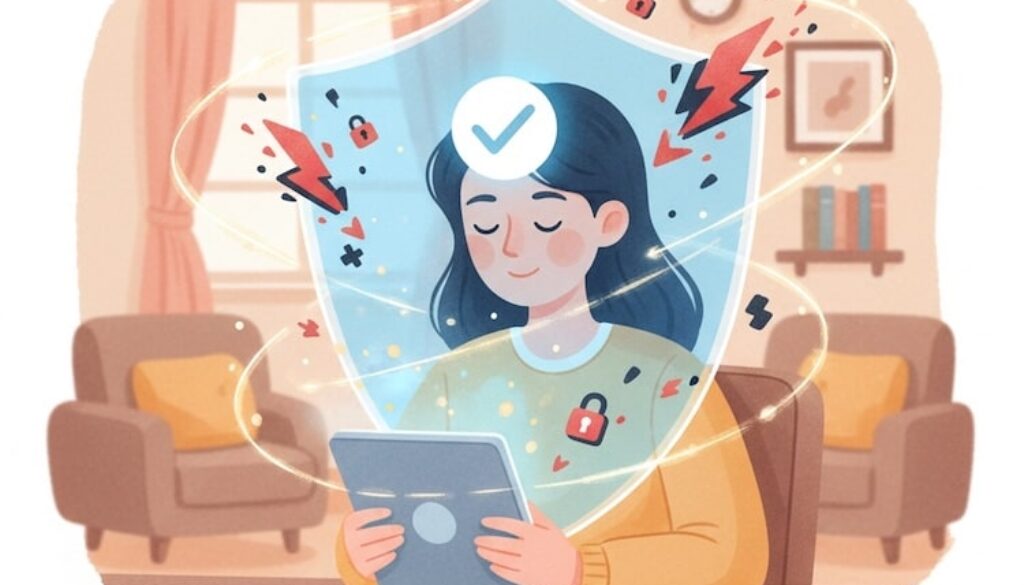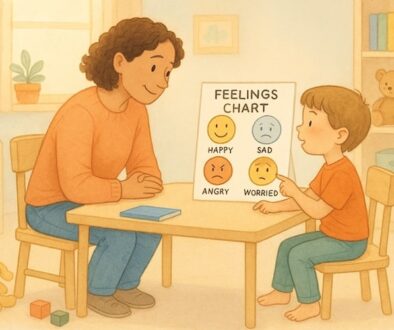How Staying Safe Online Is Great for Mental Health
No one can deny that the Internet is amazing, until it isn’t. What are we talking about? Picture this: one moment you’re watching cute cat videos or shopping for a pair of jeans, and the next you’re deep in a doomscroll, your inbox is full of phishing emails, and you feel your anxiety levels spiking higher than your Wi-Fi signal. But the truth not many people grasp is that staying safe online implies more than protecting your data; it also implies protecting your peace of mind. Because when you know your accounts, identity, and personal space are secure, your brain finally gets to relax. And in a world that already asks us to multitask like Olympic champions, that calm is priceless. So, let’s talk about how digital safety and mental health are besties and how you can start treating online security like the self-care ritual it truly is.

Set boundaries, not just in relationships but also for the Internet
Here’s the thing, people these days spend so much time on the Internet is has become one of the most important relationships in their lives. But constant connection can be exhausting, with all those DMs, comments, and notifications, often exactly when you’re trying to rest. It’s a lot. Setting boundaries online is one of the most underrated mental health moves you’ll ever make. Limit who can see your posts. Mute the negativity. Say no to that one group chat that only exists to gossip and drain your energy. When you control what comes into your digital world, you control how it makes you feel. Your mental health thrives on that kind of stability. Think of it like curating your own emotional feed. You wouldn’t invite chaos into your living room, so why let it into your inbox?
Setting strong passwords equals building a strong peace of mind
Let’s take some time to talk about passwords because “password123” is far from being the best choice. Setting a strong, unique password for every account is the best way to reduce the anxiety of staying safe online. Why? Because nothing spikes stress quite like the words “Your account has been compromised.” A good password should feel like a lock no hacker wants to pick. Long, random, and impossible to guess something like 9$Tg4l!zB0nP7. And no, you don’t have to remember all that madness yourself (you’re busy enough remembering your Netflix login). That’s what a password generator 12 characters is for. It would also be great to take it up a notch and use a password manager that lets you create ultra-secure passwords and store them safely, so you won’t panic one night at 1 am when you want to log in to a random account.
Your data is personal, so treat it accordingly
Would you ever hand your house keys to a stranger? So why would you be ok with giving all the apps you use and websites you visit access to your personal data, especially when they don’t need it? Oversharing online might not seem like a big deal, but it can lead to identity theft, scams, and (equally terrifying) targeted ads that know you too well. When you know your data is floating out there, it’s hard not to feel exposed, and that underlying anxiety adds up over time. Take back control. Check your privacy settings. Review which apps have permission to track your location, photos, or microphone (you’ll be shocked). Turn off what you don’t need. It’s empowering, like digitally decluttering your life. And that mental relief when you know only you have access to your information? Chef’s kiss.
Save your sanity by limiting the scrolling time
Social media can be a rollercoaster, and everyone can feel it. One moment, it inspires you to cook more meals at home, and the next, you start comparing your relationship to a stranger and question your entire life. Staying safe online also means protecting your mental boundaries. That means setting screen time limits, taking breaks, and unfollowing accounts that drain you more than they inspire you. It’s not about disconnecting completely, it’s about connecting with intention. Try a little “digital detox hour” every evening where you log off, stretch, and do something that actually recharges you. Your brain will thank you. Your cortisol levels will too. And here’s the fun part: when you’re less consumed by the chaos of the online world, you start enjoying the real one again. You sleep better, think clearly, and suddenly have time for that hobby you swore you’d start last year.
Share things in a smart way because not everyone online is your friend
You might die to get to your phone to share photos from your vacation or your career achievements, but oversharing personal details like financial updates or your location can open the door to unwanted attention from cybercriminals or scammers. You might say it’s paranoia, but let’s give it a second thought. You play with your privacy. You can share your happiness with your friends, but make sure to keep personal details secure. Staying safe online also means protecting your mental boundaries. That means setting screen time limits, taking breaks, and unfollowing accounts that drain you more than they inspire you. It’s not about disconnecting completely, it’s about connecting with intention. Try a little “digital detox hour” every evening where you log off, stretch, and do something that actually recharges you. Your brain will thank you. Your cortisol levels will too. And here’s the fun part: when you’re less consumed by the chaos of the online world, you start enjoying the real one again. You sleep better, think clearly, and suddenly have time for that hobby you swore you’d start last year.
Peace of mind is precious
You’re living in a world where people spend half of their time online, and protecting your peace of mind has become more challenging than ever. But when you know that your accounts are secure, boundaries are clear, and your digital world is a safe place, you can give your mind some rest. You can scroll, share, and live online without the background noise of worry.



